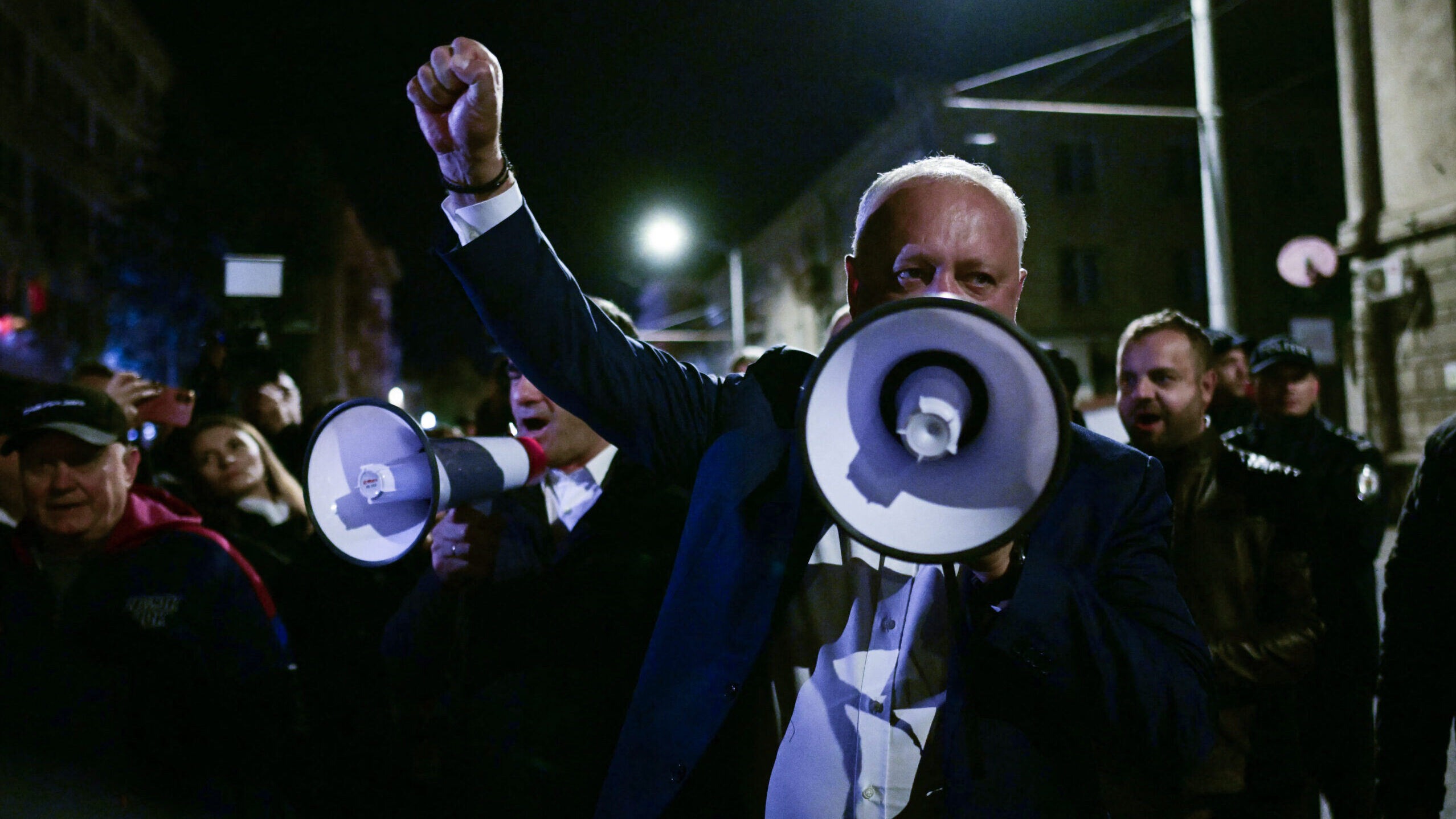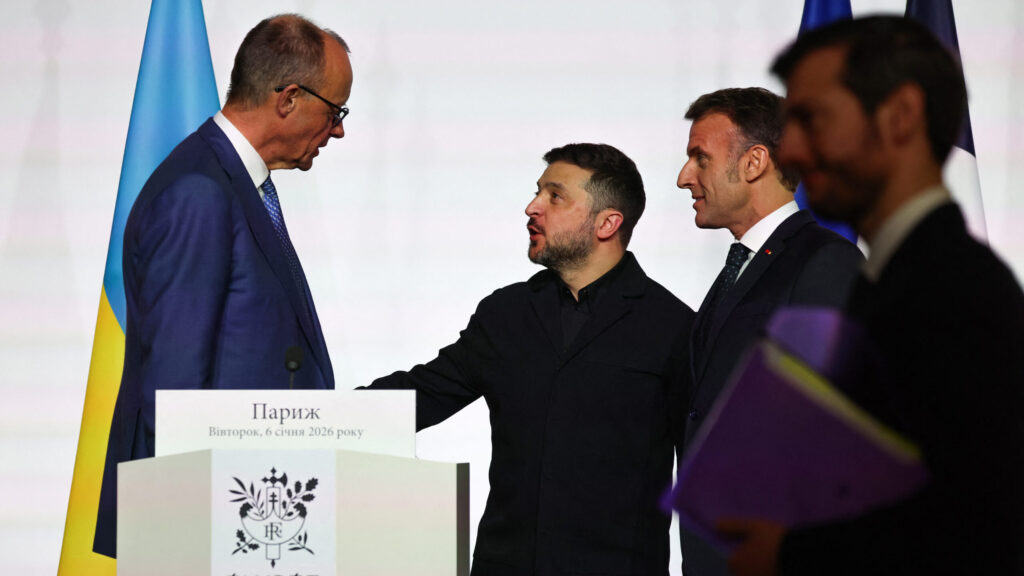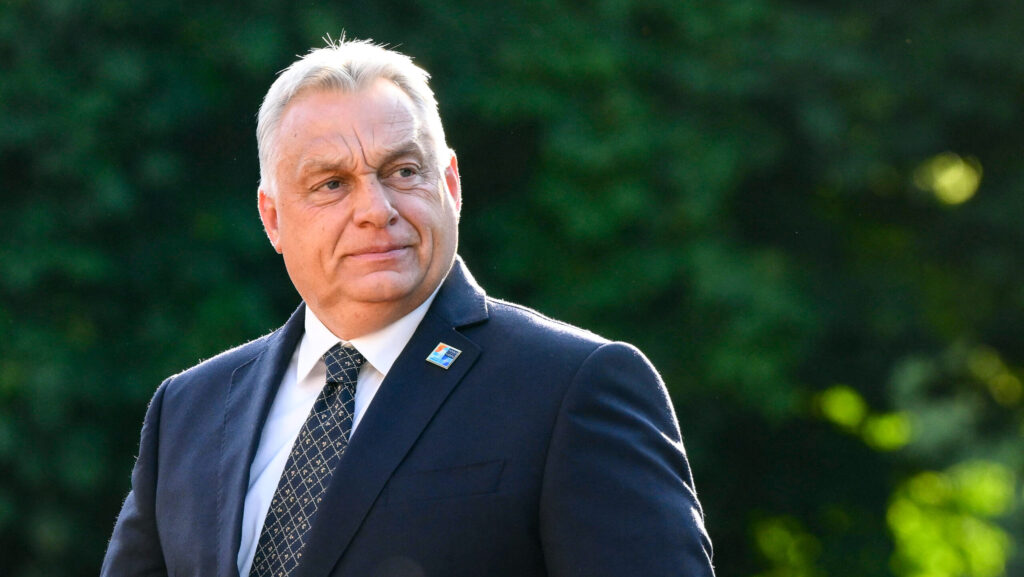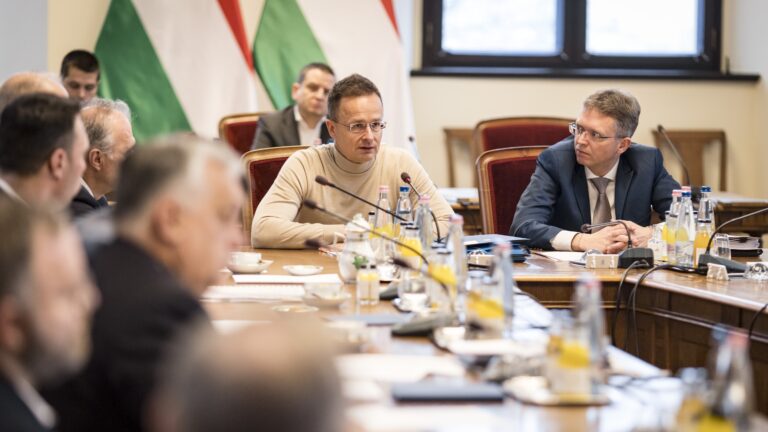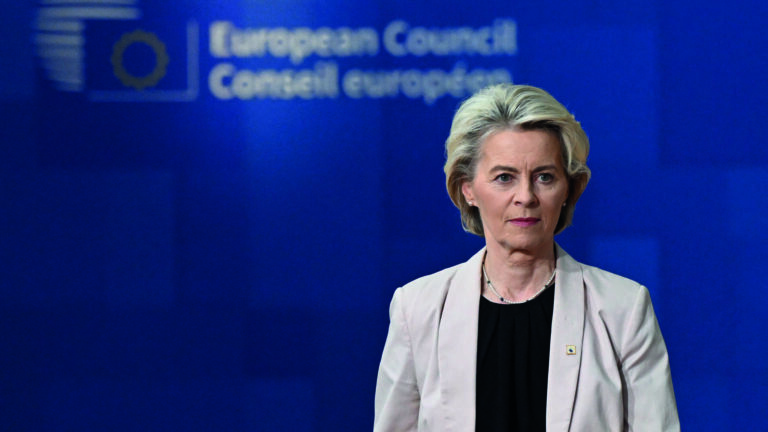Pro-EU governing Party of Action and Solidarity (PAS) has claimed victory in Sunday’s general election in Moldova. With more than 96 per cent of the votes counted, PAS leads the Patriotic Bloc—an election alliance often labelled as pro-Russian—with 48.9 per cent against 25.02 per cent. The Alternative Bloc—also accused of being pro-Russian—stands third with around 8-9 per cent.
The election carried unusually high stakes, with both the European Union and Russia framing it as a choice between continuing the European path or turning towards a more Moscow-leaning leadership. Voter turnout stood at around 52 per cent—two points down from last year’s presidential run-off won by Maia Sandu, but four points higher than in the 2021 parliamentary elections.

The campaign was marked by extraordinary tension. PAS, Western media, and even European leaders accused Russia of running a robust disinformation campaign. French President Emmanuel Macron, joined by German Chancellor Friedrich Merz and Polish Prime Minister Donald Tusk, travelled to Chișinău on 27 August, Moldova’s Independence Day, to rally support for Sandu’s party. Macron denounced Kremlin ‘lies and propaganda’, while Merz pledged European support for reforms and promised to send German experts to assist Moldova on its accession path. Moscow firmly denied the accusations, claiming that European leaders were interfering in the election.
In the run-up to the vote, Moldovan authorities conducted 250 raids on 22 September and detained more than 70 allegedly linked to a Russia-backed plan to incite ‘mass riots’ and destabilize the country. Just two days before the election, officials barred 36 candidates of Heart of Moldova, part of the Patriotic Bloc alliance, citing illegal financing. Party leader Irina Vlah was sanctioned by several EU member states on suspicion of assisting Russian interference.
While accusing Moscow—and all the opposition parties—of hybrid warfare and disinformation, the ruling party and its European allies also ‘played dirty’ to secure the victory. Just like during the 2024 presidential election, after placing every voting station outside Transnistria—the Russian-speaking breakaway region of Moldova—authorities blocked one of the main bridges linking the two territories due to an alleged ‘threat’, while several other crossings were closed for construction. People who crossed the border into Moldova to vote by car reported being subjected to lengthy searches, which caused long queues on the few remaining routes.
Leaders of the Patriotic Bloc announced a protest in front of the Central Electoral Commission building in Chișinău, claiming victory and demanding that no fraud be committed in the final tallying of the election results.
Roberto on X (formerly Twitter): “🇲🇩Moldova: the leaders of the Patriotic Bloc announced the victory of the opposition in the elections in Moldova and are picketing the Central Election Commission building with a demand to prevent fraud in summing up the election results. Footage from the street next to 🇲🇩 CEC pic.twitter.com/rJibeDwRQX / X”
🇲🇩Moldova: the leaders of the Patriotic Bloc announced the victory of the opposition in the elections in Moldova and are picketing the Central Election Commission building with a demand to prevent fraud in summing up the election results. Footage from the street next to 🇲🇩 CEC pic.twitter.com/rJibeDwRQX
Similar to the Romanian presidential run-off in May 2025, Telegram CEO Pavel Durov accused French intelligence of meddling in the Moldovan election. He alleged that French officials pressured him to block accounts accused of spreading Russian disinformation, offering leniency in his legal proceedings in France—where he had been arrested in August 2024—in exchange for cooperation. Durov said Telegram had been given two lists of channels: while one included genuine rule-breaking accounts, the second contained fully compliant, legitimate channels. ‘Telegram is committed to freedom of speech and will not remove content for political reasons,’ Durov wrote.
Pavel Durov on X (formerly Twitter): “🇲🇩 About a year ago, while I was stuck in Paris, the French intelligence services reached out to me through an intermediary, asking me to help the Moldovan government censor certain Telegram channels ahead of the presidential elections in Moldova. After reviewing the channels… / X”
🇲🇩 About a year ago, while I was stuck in Paris, the French intelligence services reached out to me through an intermediary, asking me to help the Moldovan government censor certain Telegram channels ahead of the presidential elections in Moldova. After reviewing the channels…
According to early projections by RFE/RL, PAS will win at least 51 seats in the 101-member parliament, just enough for a majority. The Patriotic Bloc is expected to secure 29 seats, while three smaller parties could take between six and nine each. Until final totals are confirmed, it remains uncertain at the time of writing whether PAS will govern with an absolute majority or need coalition partners.
UPDATE:
With 99.91 per cent of the vote counted, PAS finished first with 50.16 per cent, securing a clear governing majority with 55 of the 101 seats up for grabs. The Patriotic Bloc came second with 24.19 per cent (26 seats), while the Alternative Bloc obtained 7.92 per cent. Two other parties crossed the 5 per cent parliamentary threshold: Our Party with 6.2 per cent and the Democracy at Home Party with 5.62 per cent. PAS chairman Igor Grosu delivered a post-election briefing at party headquarters after the polls closed, framing the outcome as a mandate for ‘peace, stability, and a European Moldova,’ and outlining the next steps.
Related articles:

